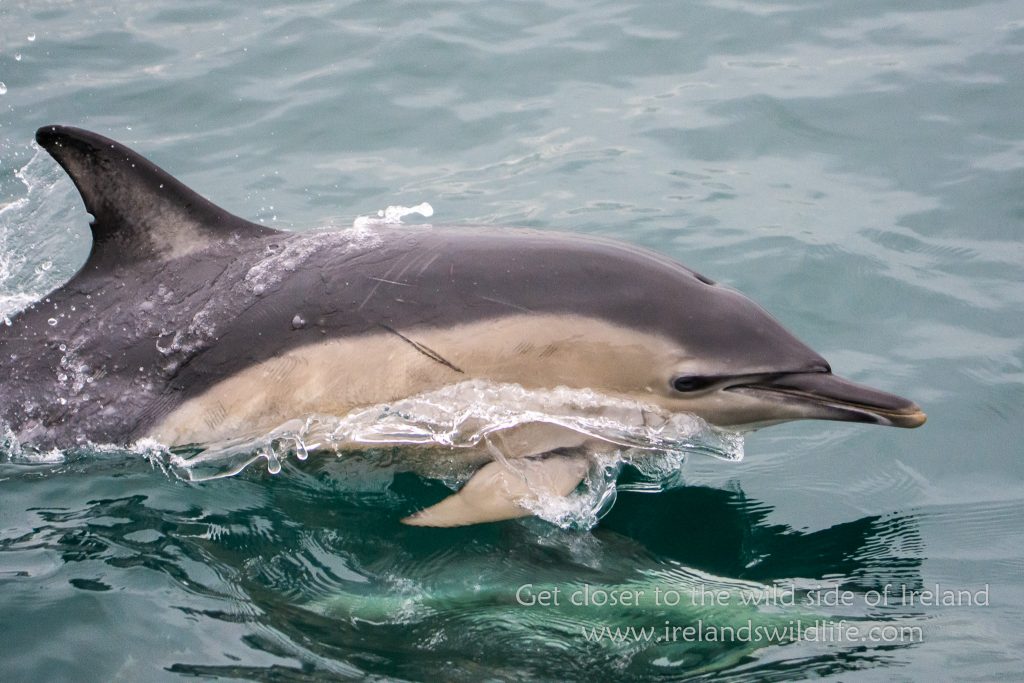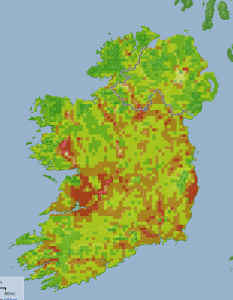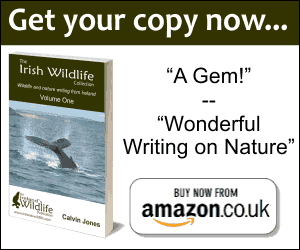
The Irish Whale and Dolphin Group has expressed concern over a worrying increase in reports of dead common dolphins (Delphinus delphis) around the Irish coast during the first two months of 2018.
According to the figures on the group’s website 2017 was a record year for cetacean strandings in Ireland, with 263 validated stranding records (of all species) documented over the course of the year, including 107 verified stranding records of common dolphin. To put those figures into some sort of context, 10 years ago the average annual number of strandings would have been in the region of 130 animals total, of which around 30 would have been common dolphins.
That’s a staggering 350% increase in common dolphin strandings over a 10 year period.
“For the last seven years or so, the news from Ireland’s seashore has become something of a broken record in late winter/early spring,” said Mick O’Connell, IWDG Strandings Officer, reporting on the issue on the Group’s website. “Each year, the message is the same – ever-increasing numbers of stranded cetaceans recorded on the Irish coast. Each year thinking, wow, we must have reached a peak now. And each year, the total increase in strandings of all species is down to a massive increase in one species – the common dolphin Delphinus delphis.”
So far 2018 is on track to smash that unpalatable record, with 86 strandings reported in the first two months of this year alone. Most of this increase is down to a spike in reported strandings of common dolphins says the IWDG — with 57 strandings recorded in January and February of this year, up 63% on last year’s record tally for the same period.
New postmortem scheme could provide answers
While speculation abounds surrounding the possible cause of this alarming increase in dolphin mortality, nobody really knows what is causing it. Reasons suggested by various sources include noise pollution, plastics pollution, disease and bycatch in fishing gear among others.
Now the IWDG hopes that a new postmortem scheme for stranded cetaceans will help shed some light on the mystery surrounding this rise in dolphin strandings.
“As yet, there are no definitive answers to the cause(s) of this ongoing unusual mortality event but an excellent step forward was taken in this country last June when the Marine Institute and National Parks and Wildlife Service put a post-mortem scheme out to tender,” explained Mick O’Connell. “This was successfully won by a joint effort by IWDG, GMIT and Cork Regional Vet Lab, so hopefully some questions will finally get answered.
“The reality is that these dolphins are dying from various causes including old age and disease but it is the cause or causes of the large increase in strandings that needs to be addressed.”
How you can help
 The IWDG collates records of all stranded cetaceans around the Irish coast to help inform research and conservation efforts for these iconic marine species, and the marine ecosystem as a whole. If you come across a dead whale on the Irish coast, you can report your sighting via the IWDG’s online stranding submission form.
The IWDG collates records of all stranded cetaceans around the Irish coast to help inform research and conservation efforts for these iconic marine species, and the marine ecosystem as a whole. If you come across a dead whale on the Irish coast, you can report your sighting via the IWDG’s online stranding submission form.
You can also become a member of the IWDG to provide ongoing support for the Group’s important whale and dolphin research and conservation in Ireland.










1 comment
Lynda O'Connell
Spotted a beautiful dead dolphin in little island at the mouth of the harbour